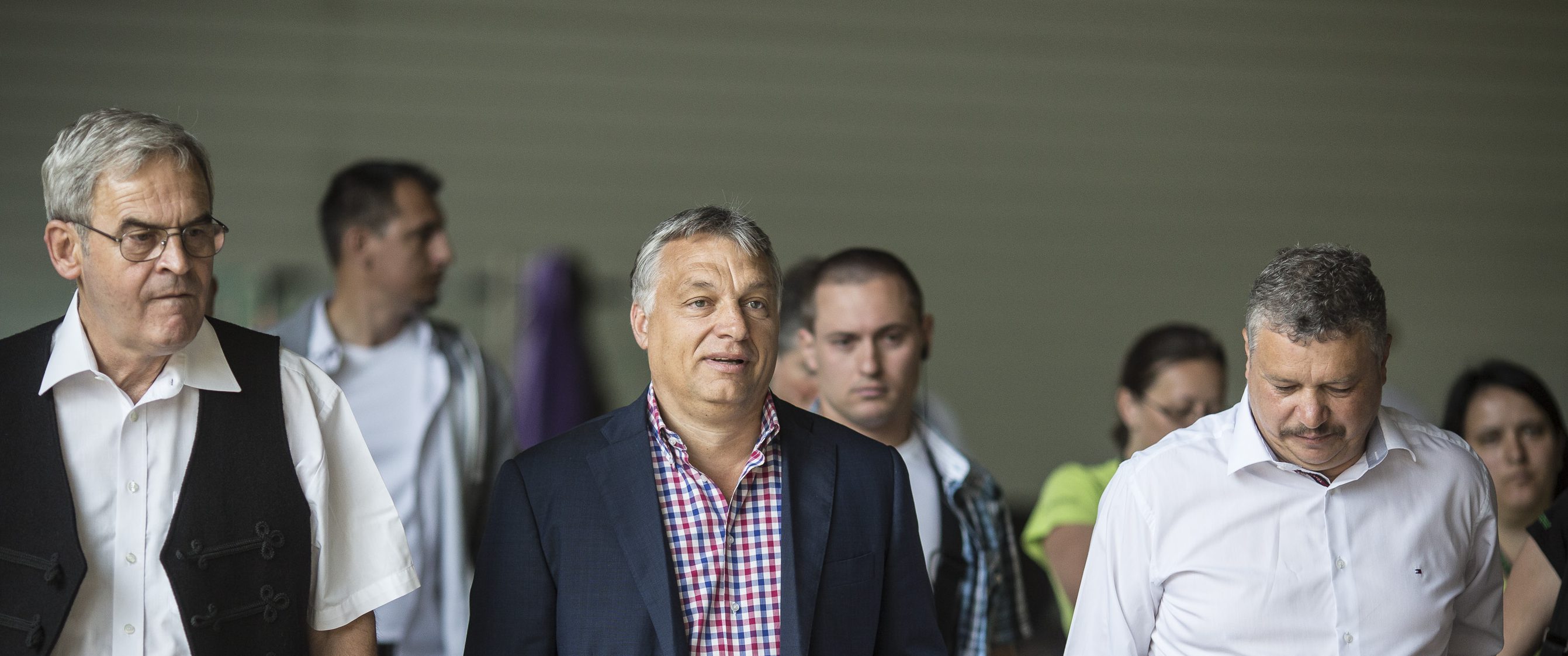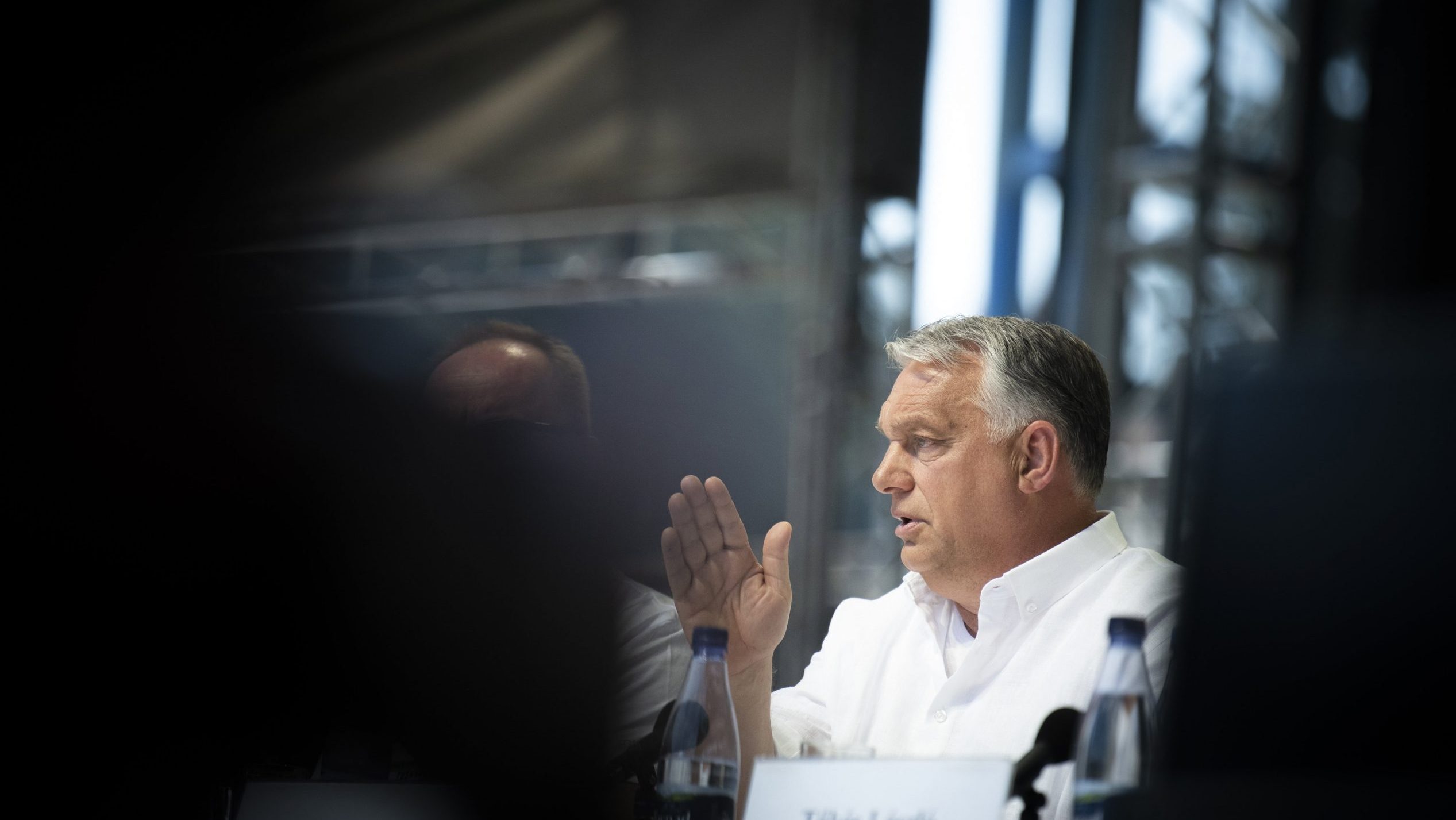
In his speech to the several thousand-strong crowd gathered in front of the open-air stage, the Prime Minister explained that “Amid the immigration crisis, the terrorist attacks and the British withdrawal from the EU, day by day in Europe fear is growing and citizens have the overwhelming feeling that the future is uncertain”. He added that “There is a crisis of the elite and of democracy in Europe and in the Western world. In Europe the leaders of the right and the left have always come from the same circles, the same schools and the same elite, and this is something which everyone took for granted while they were able to guarantee increasing prosperity in Europe while competing with each other and holding power in rotation with each other”.
“However, the economic crisis has seen the emergence of potential political representatives, radicals and populists from outside the usual elite circles”, the Prime Minister continued, also referring to one of the American presidential candidates.
“The problem is that the crisis of the elite has now become a crisis of democracy. Large numbers of people clearly and spectacularly want something different from that which the traditional elite propose and are doing”, Mr. Orbán said.
According to the Prime Minister, doing away with fear and uncertainty requires the blocking of every idea, political act and initiative in the European Union which seeks to take spheres of competence from nation states; these policies need to be stopped; the restriction of national sovereignty in the interests of expanding European spheres of competence is one of the greatest dangers in Europe today.

False self-evaluation must be ended
False self-evaluation must be ended, he added. “The British withdrawal from the EU certainly means the end of an era, which was about the organisation playing an active part in global politics. Today the EU is a regional player, and at best is only capable of influencing events in its immediate vicinity – or perhaps not even there”, Mr. Orbán said, stressing that there must also be an end to the idealisation of Europe.
“Re-establishing European security also requires us to recognise that it was a bad decision to increase the role of the European Parliament and to accept decision-making by EU Member States on the basis of a two-thirds majority rather than unanimity – even on issues which are vital to individual nations”, he highlighted. Mr. Orbán also criticised the practice of the European Commission operating as a “political committee” and deciding on political directions instead of the council of heads of state and government.
The prerequisite for action is that European leaders also accept the facts
According to Mr. Orbán, with relation to the immigration crisis and terrorism, the prerequisite for action is that European leaders also accept the facts. He pointed out that, according to an EU-wide poll by the Századvég Institute, around two-thirds of EU citizens feel that there is a direct link between migration and crime and the increase in terrorism, and they think that mass immigration is changing the face of European culture and destroying national cultures.
With regard to Republican US presidential candidate Donald Trump’s view on the steps needed to defeat terrorism, Mr. Orbán said he could not have put it better himself. In accord with Mr. Trump’s proposals for the United States, he declared that “We must turn Europe’s national secret services and their cooperation into the world’s most effective secret service system, and we must stop ‘exporting democracy’”.
“If we continue to subordinate stability to building democracy in regions where its chances of success are extremely doubtful, then we will not be building democracy, but we will instead be creating instability”, he stressed.
With regard to Turkey, Hungary’s greatest expectation is also stability: “If Turkey becomes unstable, then tens of millions of people from the region will flood into the EU with no control at all”, the Prime Minister said. “In addition, demographic forecasts show that the immigration pressure from Africa which will be placed on Europe will be several orders of magnitude greater than that which is currently coming from Syria and Libya”, he added.
According to Mr. Orbán, we should not be slowing migration – as proposed by Brussels, which sees it as a solution to demographic problems – but should be stopping it all together; this is despite the fact that security fences “aren’t pretty”. No matter how much we sympathise with migrants and see them as victims, they must be stopped at our border fence, and those who enter the EU illegally must be imprisoned: no friendlier form of defence exists, he asserted.
Europe’s current political leadership has failed
In the Prime Minister’s view, “Europe’s current political leadership has failed because the EU has lost its global role and has become a regional player, and is incapable of protecting its own citizens and its own external borders”. He continued by saying that “In September, when Europe’s leaders gather in Bratislava, the current elite will be doing everything they can to defend their stance. At this meeting the states of Central Europe must represent the standpoint that fundamental changes are required in Europe”.
According to Mr. Orbán, differentiation between the “old” and “new” Member States of the European Union is not as offensive as it used to be, because “Old Europe” is the Europe which is incapable of change, while the “New Europe” is the part of the continent which is viable and full of energy and prospects.
At the end of his speech the Prime Minister declared that everything which his Government began in Hungary in 2010 – the new Constitution based on Christian values, its policy of national reunification and its family policies – have all served the realisation of a single goal, the relevance of which has been proven by the events of recent years: “We want Hungary to remain a point of certainty in a world of uncertainty”.

